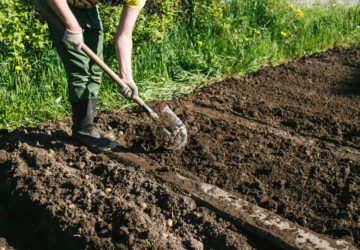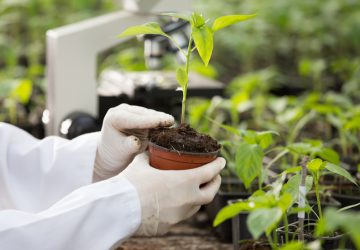The short answer, of course, is nothing. “Locavorism” is a social movement dedicated to limiting a would-be chef’s food options to what is grown “in season” and can be found within 100 miles. If you’re into devolving your diet and abandoning “globavore” eating (is that a word?), it’s entirely up to you. But if you get snooty about it and start wearing your new eating philosophy on your sleeve, don’t be surprised when the backlash sets in.
At least that’s what renowned chef Mark Liberman is hinting at on his well-regarded foodie blog. Because as your great-great-grandparents would tell you (if they could), there’s really nothing “new” or revolutionary about eating local:
What I don’t like is this new self indulged movement that says to be a locavore you need to go to a farmers market, pickle something from the winter to enjoy in the spring, buy from local vendors, go to a farm and meet the man who raises your chickens and make your own vinegar from leftover grapes during harvest. Do I agree with all these?? Yes, of course I do!! But these are things that have been around for centuries, in fact I have several cookbooks in my library at home that date back to the 1800′s that focus on this. So, when I hear someone tell they are a locavore, I have nothing to say. Locavores have good ideas, relevant ideas, but there is nothing new.
On his own blog this week, Sacramento Bee restaurant critic Blair Anthony Robertson took notice of Liberman’s judgment, adding his own suspicions of the “self-congratulatory component to it that tends to be annoying”:
I even encountered a menu in Roseville that touted "local" halibut. I'm not a fisherman, but I didn't think halibut were found wending their way through the shallow waters of the American River, though I have spotted a sea lion at Sutter's Landing. I had always thought that the biggest and best halibut were caught in Alaska. When I asked the server, she wasn't sure what “local halibut” meant, so she checked with the chef. Turns out, “local”meant Pier 36 in San Francisco …
Too often, touting local or farm to table is an excuse to take the rest of the night off. I mean, if it's local and we can even name the farm, we don't have to do anything interesting to the cooking or even to the prepping. Yes, I've eaten plenty of steak of laudable provenance only to encounter lots of local gristle.
For most consumers, of course, farm-to-table dining ethics aren’t where the rubber meets the road. Most households are more concerned with how available food is, what it costs, and whether or not they enjoy it enough to have it again. And in most parts of the country, eating strictly local would mean avoiding veggies during the coldest months. (How healthy is that?)
For locavores who haven’t sufficiently hamstrung their cooking options, they can always become raw-food vegans, or “invasivores” (the “if you can’t beat ‘em, eat ‘em” approach to managing invasive species), or even “freegans” (because it’s hard to eat more “local” than your nearest dumpster).
These are all legitimate, if unconventional, choices. Different strokes for different folks. Just don’t do too many victory laps around the kitchen.




